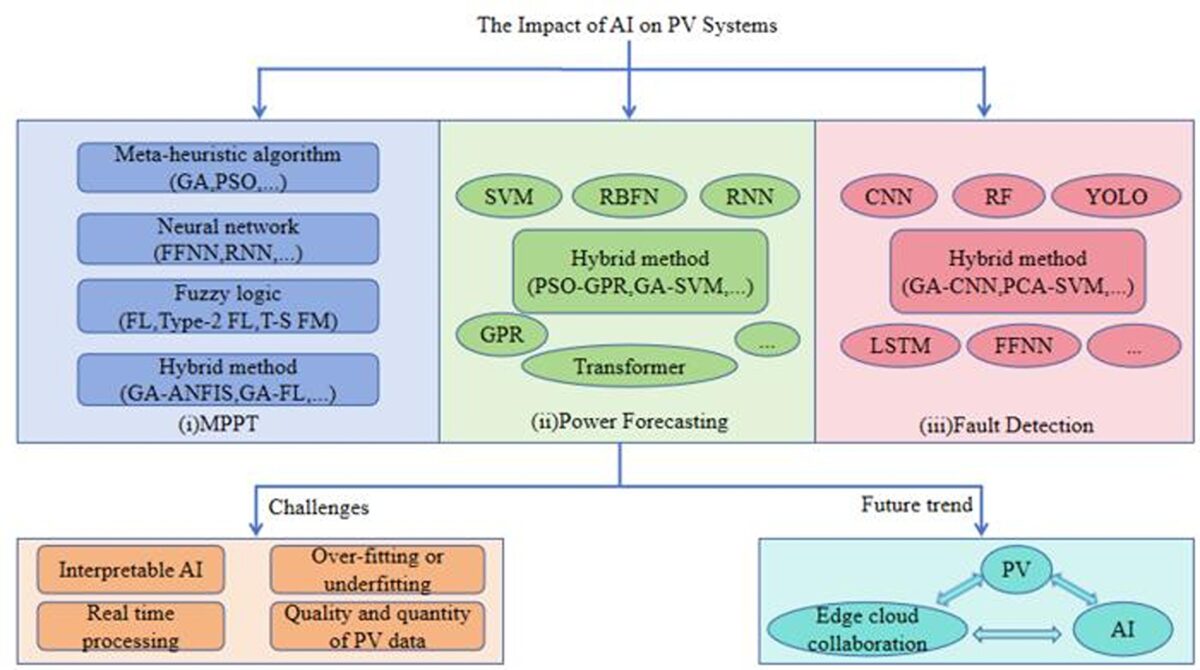Researchers from China and Malaysia have explored the impact of artificial intelligence on PV generation systems and related applications from a global perspective. They focused on reviewing AI applications in maximum power point (MPP) tracking, power forecasting, and fault detections within PV systems.
The researchers analyzed publications showing how AI techniques solve MPP tracking issues, compiling single and hybrid AI methods and exploring their advantages and disadvantages. For power forecasting, AI algorithms can detect deviations from normal operations that may indicate faults or anomalies, where manual inspection may not suffice.
“The overall message is an optimistic outlook on how AI can lead to more sustainable and efficient energy solutions,” said Xiaoyun Tian, a researcher at the Beijing University of Technology. “By improving the efficiency and deployment of renewable energy sources through AI, there is significant potential to reduce global carbon emissions and to make clean energy more accessible and reliable for a broader population.”
The paper also considers the challenges that arise as the operational efficiency of PV systems continues to improve, such as revised standards for achieving carbon neutrality, interdisciplinary cooperation and emerging smart grids.
The researchers said the next steps should focus on advancing AI techniques for PV systems, implementing AI solutions in existing PV infrastructure, scaling up successful AI integration, developing supportive policies, increasing awareness of AI benefits, and aligning advancements with global sustainability targets.
“AI-driven techniques are essential for the future development and widespread adoption of solar-energy technologies globally,” added Tian.
The research paper, “A Comprehensive Review of Artificial Intelligence Applications in the Photovoltaic Systems,” is available in the latest edition of CAAI Artificial Intelligence Research. The team consists of researchers from Beijing University of Technology, Chinese Academy of Sciences, Hebei University, and Universiti Tunku Abdul Rahman.
This content is protected by copyright and may not be reused. If you want to cooperate with us and would like to reuse some of our content, please contact: editors@pv-magazine.com.




This research highlights the transformative potential of AI in enhancing the efficiency and reliability of photovoltaic systems, crucial for a sustainable energy future. The integration of AI in areas like MPP tracking and fault detection shows promise in making solar energy more accessible and resilient. It’s exciting to see how AI, including technologies like ChatGPT, could be used to advance predictive maintenance and system optimization, leading to significant reductions in carbon emissions and improved energy security. As we move forward, interdisciplinary cooperation and supportive policies will be key to unlocking the full potential of these innovations in the global push towards carbon neutrality.